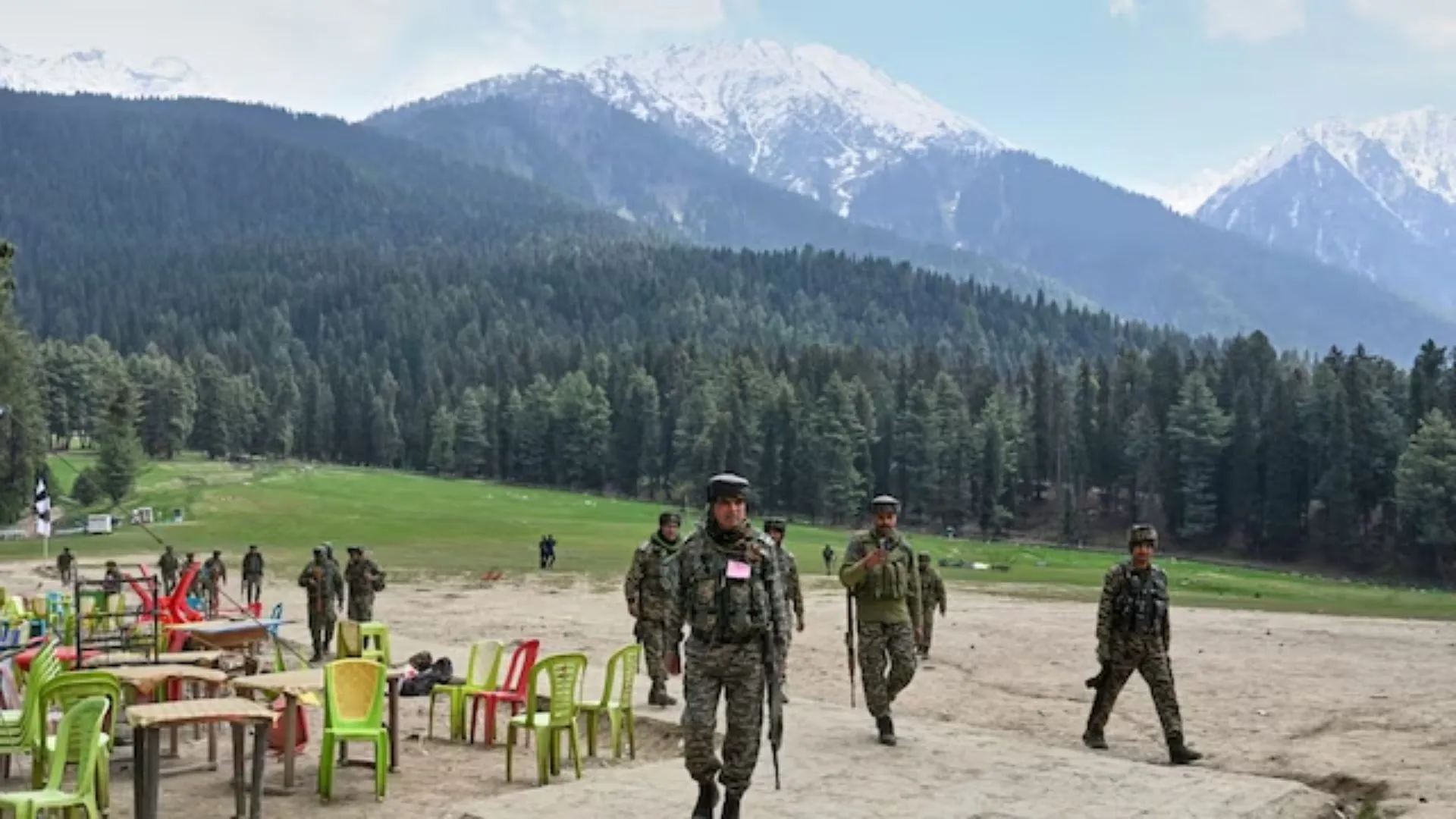The United Kingdom has expressed firm support for India after a deadly terror attack claimed the lives of 26 tourists in Jammu and Kashmir’s Pahalgam district on April 22. During a 45-minute session in the House of Commons on Wednesday, the British Parliament condemned the attack and pledged to help India bring the perpetrators to justice.
The urgent discussion was initiated by Labour MP Gurinder Singh Josan, who raised an “Urgent Question” in Parliament, pressing the government on what role the UK was playing in supporting India’s efforts to track down those responsible for the violence.
UK Minister Condemns the Attack, Urges Calm in the Region
Responding on behalf of the government, Foreign Office Minister Hamish Falconer strongly condemned the attack.
“The horrific terrorist attack in Pahalgam in Jammu and Kashmir on 22 April was devastating… We call on all sides, all community leaders and all involved to call for calm at a time of tension in the region…We want to see the perpetrators held to justice properly, and we will be supporting India to do so,” said Falconer.
When asked about the BBC’s reference to the attack as “militancy,” Falconer addressed the issue carefully, noting the government’s position.
“I resist calls for ministers to police the BBC’s language too much, but let me be clear: this was a horrific terrorist attack, and that is the view of the British government,” he said.
MPs Across Parties Show Unwavering Support for India
Members of Parliament from both major political parties—Conservative and Labour—showed unanimous support for India during the session.
Conservative MP Bob Blackman condemned the attack in strong terms and called on the UK government to offer full assistance to India in fighting cross-border terrorism. He described the assault as “well organised and coordinated.”
“The sad reality is this: whilst the government may give expressions of condolences and support for the people of India, the fact remains that the terrorist bases that exist in the part of Kashmir, illegally occupied by Pakistan,” Blackman added.
Earlier, on April 25, Blackman had spoken at an event at India House, voicing his full backing for India’s pursuit of justice. “I would strongly support whatever India does to pursue the terrorists and those who have backed the terrorists, make sure they are brought to justice. If they can’t be brought to justice, they must be eliminated,” he had said.
Labour MP Catherine West, who serves as the UK’s Minister for the Indo-Pacific, echoed this support. “The UK stands shoulder to shoulder with India in the face of the cowardly attacks of terrorism against innocent civilians,” she said.
Labour MP Barry Gardiner also took a firm stance and demanded stricter conditions on UK support to Pakistan. “Is it not time to make the support we give to Pakistan conditional on them finally closing down the terrorist training camps that they harbour?” he asked.
Indian High Commissioner Describes Attack as Deliberate Attempt to Disrupt Peace
India’s High Commissioner to the UK, Vikram Doraiswami, offered a powerful condemnation of the April 22 attack, calling it one of the deadliest acts of terror since the Mumbai attacks of 2008.
“This is the largest killing of civilians since the Mumbai terror attacks,” he said. “People were pulled out, identified on the basis of their religious identity and shot dead… The purpose of this exercise was purely to create terror and to undermine the ongoing normalisation of circumstances in Jammu and Kashmir. We will never forget, we will never forgive, and we will exact a punishment.”
Pahalgam Terror Attack
The deadly attack took place in the Baisaran Valley area of Pahalgam. According to reports, 26 tourists were killed in cold blood. Initially, The Resistance Front (TRF), an offshoot of the banned Pakistan-based terrorist group Lashkar-e-Taiba (LeT), claimed responsibility. However, on April 26, TRF retracted the claim, stating that its social media channels had been compromised.
Despite the retraction, Indian authorities launched a wide-scale crackdown. The Jammu and Kashmir Police released sketches of three terrorists believed to be responsible. Two of them were identified as Pakistani nationals, and the third was a resident of Anantnag in Kashmir. His house, along with those of several other suspected terrorists, was demolished.
India Responds with Strong Diplomatic Measures
In the wake of the attack, India responded forcefully on the diplomatic front. The government suspended the Indus Waters Treaty, expelled Pakistani diplomats, called back its own officials from Islamabad, and shut the Attari border.
Prime Minister Narendra Modi made a clear and stern statement: “I say to the whole world. India will identify, track and punish every terrorist and their backers. We will pursue them to the ends of the earth.”
Tensions Rise as Pakistan Denies Involvement
Pakistan has denied any role in the attack. Prime Minister Shehbaz Sharif called for a “neutral probe” into the incident. However, Islamabad’s reaction further fueled tensions, as Pakistan threatened retaliation over India’s decision to halt the Indus Waters Treaty.
In a tit-for-tat move, Pakistan warned it would take reciprocal steps, including withdrawing from the Simla Agreement and closing its airspace to Indian flights.






















